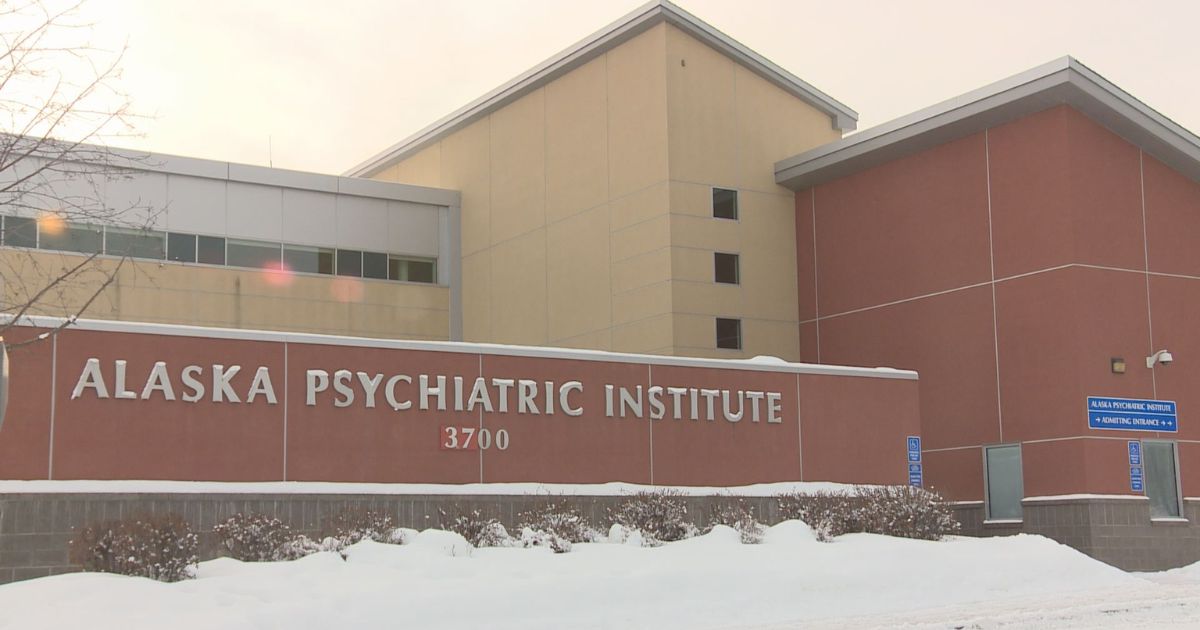Alaska’s only mental hospital, the Alaska Psychiatric Institute (API), is set to double its capacity to provide treatment for criminal defendants charged with felonies who are unfit for trial.
This strategic move is designed to address long-standing delays in the state’s criminal justice system concerning the provision of “competency restoration” services for mentally ill persons.
Addressing Backlogs in Alaska’s Justice System
The present situation highlights the major backlog in Alaska’s legal system which involves restoration of competency among people with mental problems.
In Alaska a person accused of a crime must understand the proceedings or be able to assist properly in their own defense. Otherwise, they have to dismiss charges leveled against them.
Among other challenges, API is the only facility in the State where defendants with severe mental illnesses can get competency restoration treatment.
The facility has faced numerous challenges due to lack of enough beds as it has only ten beds for competency restoration presently on offer.
As a result, there are too many people waiting to get into this institution and thus they end up spending more time behind bars without resolution of their cases.
Plans for Expanding Treatment Programs
Lately, API officials have announced plans of starting new programs targeting more felony defendants for competency restoration treatment while in custody.
This effort will involve adding 10 additional beds within jail-based program serving those facing felony level crimes. Furthermore, an outpatient clinic has 10 slots reserved for misdemeanor cases.
Dr. Christine Collins, a forensic psychologist at API, highlighted the significance of these programs specifically when serving individuals charged with misdemeanors.
The new outpatient program proposes that there be movement from defendants through mental health court instead of wholesale dismissal of charges to provide alternative resources and services as well as community oversight.
Competency Restoration and its Impact
Restoration programs focus on training rather than cure. These programs use different methods such as therapy and medication aimed at stabilizing individuals explaining trial processes so that they can continue with their cases.
However, this policy has been controversial on a national level because it can be quite costly to steer defendants through the trial process, especially when some argue that they shouldn’t even be within the criminal justice system in the first place.
Many of these programs keep potentially violent offenders from having charges dismissed but due to them people with serious mental illnesses who are generally non-violent and often victimized end up in jails, constituting a threat towards community safety.
Challenges and Previous Incidents
Incidents involving individuals deemed unfit for trial who have later committed violent acts highlight challenges facing Alaska’s competency restoration system.
These cases illustrate how complex and dangerous it is to manage mentally ill populations within legal structures.
Implementation of New Programs and Funding
According to experts like Dr. Collins, the long-awaited implementation of the outpatient and jail-based competency restoration programs are major milestones.
They are funded by various entities including Alaska Mental Health Trust Authority and Alaska Legislature.
Anticipated Impact and Future Prospects
API intends to evaluate these programs using patient outcomes as well as assessing whether waitlists and backlogs are reduced as a result.
Even though they have started their operations, there remains speculation about how far they will go.
Nevertheless, officials believe that these measures will resolve current problems within the state’s justice system.
Just as it was mentioned in the foregoing, these restructured competency restoration programs are a significant development in the reduction of backlog and provision of important mental health services to the Alaska’s criminal justice system.
The intention is to make processes efficient, waiting lists shorter and create more fairness for patients with mental issues who get into trouble with the law.






















